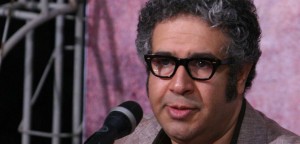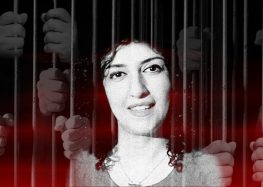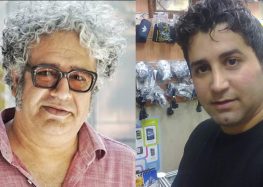Eminent Iranian Poet and Filmmaker Repeatedly Interrogated by Intelligence Ministry
Baktash Abtin’s Case Expected to be Sent to Court
Iran’s Intelligence Ministry has repeatedly summoned and interrogated the well-known Iranian poet, documentary filmmaker, and member of the Board of Directors of the Iran Writers Association, Baktash Abtin, in recent days, and interrogations over his work and professional associations are likely to continue prior to his case being sent to court.
In a recent interview with the International Campaign for Human Rights in Iran, Abtin stated, “I was interrogated over three consecutive days from April 26 through April 28 for my films, my membership in the Writers Association, and my participation in the street protests of 2009 [the widespread peaceful protests that followed the disputed presidential election in Iran that year]. According to them, there is still one more interrogation session for my poems.”
“They said that the Intelligence Ministry’s poetry expert will have to ask me a series of questions, and that they would inform me by phone whether I should go there Sunday [May 3], or another day. They will then send my case to court,” Abtin told the Campaign.
Abtin stated that he thought his last interrogation was going to take place on May 3rd, but a source close to the case has since told the Campaign that the interrogations have continued beyond May 3.
Baktash Abtin, 43, was elected to the Board of Editors of the Iran Writers Association in 2014, along with four other writers. He has made several documentary films, such as October 13, 1937, a documentary about Iranian Maestro Loris Tjeknavorian, and Ensor, about censorship in Iran, which have been screened at international film festivals. He has also published several poetry books.
Last year, when he served as Secretary of the Iran Writers Association, he was interrogated repeatedly by Intelligence Ministry agents. Asked about the topics of interrogation, Abtin told the Campaign, “The main thrust of my interrogations was about my activities at the Iran Writers Association, and especially the statements we release.”
“Another part of the interrogations,” he continued, “was about my films that are not permitted to screen in Iran, and have been shown in foreign film festivals. They said that I shouldn’t have made these films, and that I have presented a dark portrayal [of the Islamic Republic of] Iran through these films, [but] I believe that the films were full-length mirrors of Iran[ian society].”
“My interrogations also had to do with my presence at the street protests of 2009. Security agents attacked me with a knife at one of those protests and broke my skull. I was immediately transferred to Firouzgar Hospital and I had to stay in bed at home for about a year. I was on the street that day, like other citizens. I had not gone to take pictures or film,” he stated.
Asked whether he learned about his charges during the interrogations, Abtin said, “They told me about ‘propaganda against the state,’ and they also said that my charge is publishing publications without a license. [But] when I asked them what they meant by publishing without a license, they said they meant the statements the Writers Association publishes.”
Describing his treatment by Intelligence agents during the interrogations, Abtin said, “The first day they came to search my home, they treated me in a very friendly and polite manner. This treatment continued into the first day of interrogations. But on the second day, it wasn’t as polite as the other times. I did protest during the interrogations, stating that I do not believe in this manner of conversation, and that if the interrogations continued in this manner, I would not continue, and they can do whatever they want. But at the next session, their treatment was very good, like that first time.”
“These days will pass,” said the artist. “One day, there will be people who know neither me and my colleagues, nor my interrogators. But judging based on what will remain in history, they will discover that throughout times, people like me have done worthwhile cultural work. When I was making a film about specific subjects such as censorship in Iran, I knew it most likely would have some consequences, or I knew that my activities at the Association would have certain consequences, but I preferred to work, as opposed to sitting idle in a corner, or to do things for money in which I don’t belief.”
According to reports by the Iranian Writers Association, security agents also went to the home of another member of the Iran Writers Association, Reza Khandan, on April 29, searched his home and asked him to turn himself in to the Intelligence Ministry on Sunday, May 3 for questioning, which he did.







